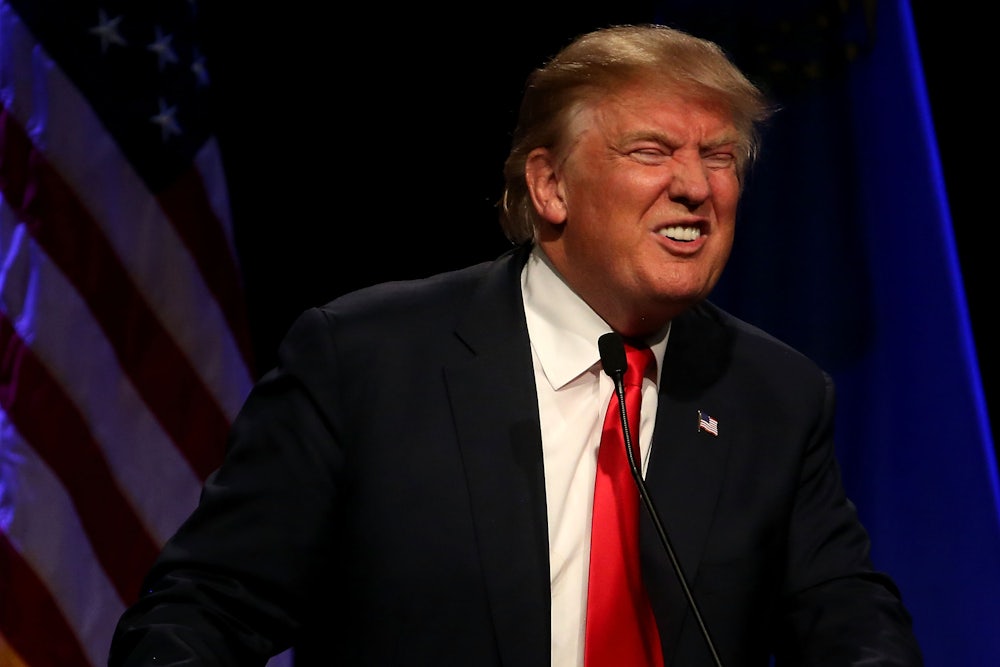In the spirit of always fighting the last war, Republicans are kicking around the idea of imposing strict barriers to entry into the Republican presidential primary field four years from now.
“Let’s make running for the Republican nomination a truly conservative affair,” writes John Noonan, former adviser to Jeb Bush. “You want it? Earn it. Raise $5 million for the RNC in the years before the nomination and only then do you qualify to run.”
This kind of thing may be necessary if the GOP is to avoid another Trumpening, but also woefully insufficient. Noonan’s specific idea would be difficult to implement for some of the reasons he lays out in the article. It also probably wouldn’t have stopped Trump from running this cycle, thanks in large part to the Supreme Court’s decision in McCutcheon two years ago, which made it much easier for rich people to raise money for official party committees.
But let’s imagine a rule that would’ve foreclosed a Trump candidacy altogether was in place as of 2015—for instance, one holding that to run, you must have won elected office as a Republican within the past 12 years.
Maybe Trump would’ve just sat the whole thing out. But he might’ve driven a near-majority of the GOP’s base into a third party. Or, he might’ve made the qualifying candidates compete for his endorsement by establishing politically toxic criterion: mass deportation, commitment to a border fence, other commitments that would’ve Trumpified the winning candidate.
Remember, it’s not like Trump barely edged out the establishment. The runner-up was Ted Cruz; basically everyone else got no traction at all. Absent Trump, Cruz would’ve consolidated the charlatan wing of the party, and the influencers now propping up Trump would be doing the same for Cruz, only with somewhat less establishment resistance.
The problems the GOP faces, in other words, can’t be papered over with narrow process adjustments. After determining that the 2012 GOP primary had done severe political damage to Mitt Romney, the RNC changed its rules in an effort to prevent the same thing from happening to their next nominee. Among other things, they scheduled fewer debates and moved the Republican National Convention back several weeks. The goal was to protect the frontrunner from too many televised shitshows and to allow the winner to engage in the general election as early as possible. In the end, the decisions they made largely backfired. If GOP elites respond to this election by trying to freeze out their carnival barkers, the carnival barkers will simply adjust their efforts to influence the outcome, with unpredictable consequences.
